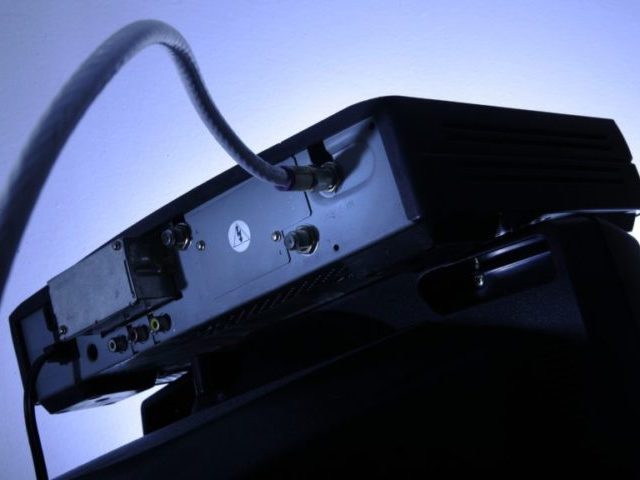The Minnesota Attorney General has reportedly sued Comcast in Hennepin County District Court, claiming that the company lied to customers in order to hide extra service charges.
Minnesota Attorney General Lori Swanson has reportedly sued Comcast in Hennepin County District Court, filing a lawsuit on December 21 which alleges that the company has violated the state’s Prevention of Consumer Fraud Act and Uniform Deceptive Trade Practices Act. According to Ars Technica, the report alleges that Comcast told customers that “Regional Sports Network (RSN)” and “Broadcast TV” fees were mandated by the government and not Comcast itself, which is untrue.
The fees mentioned in the lawsuit have gone up to $18.25 a month for customers, Comcast has since alleged that they stopped these practices, but Minnesota officials claim that the company continued to lie about the fees well into 2017. These are the lawsuit’s claims about Comcast’s description of the fees:
Despite creating the Broadcast TV fee and Regional Sports fee on its own initiative and increasing them at its own whims, Comcast/Xfinity has sometimes misrepresented to Minnesota consumers that it cannot control whether it charged consumers these fees or how much it charged for the fees. For example, Comcast/Xfinity told Minnesota consumers in 2015, 2016, and 2017—when the consumers called the company regarding undisclosed increases on their supposedly fixed-price bills—that the Broadcast TV fee and Regional Sports fee had increased or been added to their bills, but that “those fees are actually local fees and correspond to the FCC and we don’t manage those okay? Those aren’t up to Comcast;” “but that’s something again that’s out of our control;” that the increases “are outside our control;” “we have no control over the fees;” “the only thing Comcast cannot control are the taxes and fees within your state;” and that the Regional Sports fee can’t be taken off because it’s part of the “taxes.”
But according to the lawsuit, “Comcast/Xfinity is not required by any state or federal law to collect such fees,” and “has chosen to segregate these fees from its base price so it can deceptively advertise and promise an artificially low price to price-sensitive customers, and at the same time confuse and conceal the true monthly cost of its Cable Television Packages.”
The complaint also alleges that Comcast charged customers for services that they did not receive and used gift cards as incentives but “did not deliver these gift cards to thousands of Minnesota customers.” The complaint claims that Comcast “has violated Minnesota’s consumer protection laws and injured thousands of Minnesota consumers who purchased Comcast/Xfinity’s cable television packages.”
Comcast issued the following statement on the situation:
We’re fully committed to our customers in Minnesota, and it’s important to us to make sure we deliver best-in-class products and services and that our customers understand the products and services they order. We fully disclose all charges, fees, and promotional requirements—and in fact have made numerous enhancements in our communications with our customers over the past few years. The facts today simply do not support the Minnesota AG’s allegations, most of which date back several years and have already been corrected. Our preference all along has been to work collaboratively with the Minnesota AG’s Office to resolve any remaining issues the office might have.
Below are examples of just some of the services that customers were charged for but allegedly never received:
- In 2015, Comcast/Xfinity deceptively enrolled a consumer in a minimum-term agreement Cable Television Package that she did not want, and then charged her an early termination fee when she cancelled the unrequested package.
- In 2015, a consumer called Comcast/Xfinity to have her Internet service restored and was told a technician would be sent out to resolve the issue. Without informing the consumer, Comcast/Xfinity then added a charge for a service protection plan to her account and began charging her $4.99 each month for this unauthorized service.
- Comcast/Xfinity fraudulently added and began charging a consumer (who was receiving Comcast/Xfinity’s cable and Internet services) for telephone service in 2014, even though the consumer had explicitly declined Comcast/Xfinity’s offer for such telephone service. Once Comcast/Xfinity finally agreed to remove this unauthorized service, it still charged the consumer a $130 early termination fee and one month of telephone service.
- In 2016, a consumer called Comcast/Xfinity to inquire about its Cable Television Packages but ultimately stated she needed more time to think over her options and did not agree to enroll in any Comcast/Xfinity service. Nevertheless, Comcast/Xfinity enrolled her in a Cable Television Package and shipped her equipment (that she never ordered) in the mail and began sending her monthly bills, as well as threatened to refer her account to a collections agency due to nonpayment.
- Comcast/Xfinity fraudulently began charging a consumer a monthly fee for a modem in 2016. The consumer never authorized this charge and had explicitly informed Comcast/Xfinity that he did not want or need a modem from the company because he already had his own.
- In 2015, a consumer noticed that Comcast/Xfinity had been charging him $4.99 a month for its service protection plan, even though the consumer had never requested the plan and never consented to this monthly charge.
Breitbart News will be following this lawsuit closely and will keep readers updated.

COMMENTS
Please let us know if you're having issues with commenting.